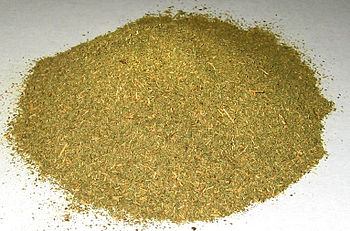
On September 8, Libertarian Party presidential candidate Gary Johnson appeared on MSNBC’s Morning Joe, where panelist Mike Barnicle hit him with the question:
“What would you do if you were elected about Aleppo?”
Johnson: “About?”
Barnicle: “Aleppo.”
Johnson: “And what is a leppo?”
Barnicle: “You’re kidding.”
Johnson: “No.”
Maybe you’ve heard about this exchange. Maybe you know (or maybe you Googled and found out) that Aleppo is the largest city in Syria and a focal point of the war between Syria’s government and Islamic State rebels.
Be warned: If you listened to MSNBC’s “expert” on Syria, or read the New York Times account of Johnson’s “faux pas,” you got bad scoop. They didn’t know much about Aleppo either, inaccurately describing the city as the Islamic State’s “capital” (that’s Raqqa, not Aleppo).
My gut feeling is that the average American will come down on Johnson’s side of this teapot tempest, for two reasons.
First, most Americans likely know little if anything about Aleppo and don’t care to, so they can probably sympathize. Johnson’s foreign policy focus as a presidential candidate is “big picture.” He wants the US to stop militarily intervening everywhere around the world at the drop of a hat. He doesn’t have to know the name of every city in the world to know that he doesn’t want to bomb them.
Secondly, the question was transparently framed as an ambush. Barnicle’s obvious intent was to try and get a Dan Quayle or George W. Bush type howler or malapropism out of Johnson.
Any TV talking head who queried Hillary Clinton or Donald Trump on the subject would do so roughly as follows:
“Moving on to Syria: If elected, what is your plan to address the civil war there, destroy ISIS and bring peace to the region? And what do you think of reports of new chemical attacks in the country’s largest city, Aleppo, where fighting between regime forces and ISIS has flared up again?”
Not: “What would you do if you were elected about Aleppo?”
To Johnson’s credit, he quickly owned up to and apologized for his knowledge gap in the area of Syrian geography. But he shouldn’t have had to, because he shouldn’t have been asked that question in that exceedingly unprofessional manner.
Running for president is not a geography quiz.
And Morning Joe isn’t — or at least shouldn’t be — an arm of Hillary Clinton’s campaign, charged with helping her regain traction among voters who have abandoned her for third party candidates because of her demonstrated personal corruption and incompetence, not to mention her dangerous foreign policy belligerence.
Yes, Clinton knows where Aleppo is — and she’d turn the city of more than two million into a lifeless crater given the opportunity.
Is Johnson all that and a bag of chips? Maybe not. But at least his ideas on foreign policy and military adventurism don’t constitute an existential threat to the US and to humanity. The same can’t be said for the ideas of Donald Trump and Hillary Clinton.
Thomas L. Knapp (Twitter: @thomaslknapp) is director and senior news analyst at the William Lloyd Garrison Center for Libertarian Advocacy Journalism (thegarrisoncenter.org). He lives and works in north central Florida.
PUBLICATION/CITATION HISTORY
- “It’s a presidential campaign, not a geography quiz,” by Thomas L. Knapp, St. George, Utah Spectrum, 09/09/16
- “Election 2016: It’s a Presidential Campaign, Not a Geography Quiz,” by Thomas L. Knapp, OpEdNews, 09/09/16
- “It’s a presidential campaign, not a geography quiz,” by Thomas L. Knapp, Mansfield, Ohio News Journal, 09/09/16
- “It’s a presidential campaign, not a geography quiz,” by Thomas L. Knapp, Des Moines, Iowa Register, 09/09/16
- “Election 2016: It’s a presidential campaign, not a geography quiz,” by Thomas L. Knapp, Claremont, New Hampshire Eagle Times, 09/10/16
- “Election 2016: It’s a Presidential Campaign, Not a Geography Quiz,” by Thomas L. Knapp, Ventura County, California Citizens Journal, 09/12/16
- “It’s a presidential campaign, not a geography quiz,” by Thomas L. Knapp, Bucks County, Pennsylvania Courier Times, 09/13/16
- “Election 2016: It’s a Presidential Campaign, Not a Geography Quiz,” by Thomas L. Knapp, Uintah Basin, Utah Standard, 09/13/16
- “It’s a presidential campaign, not a geography quiz,” by Thomas L. Knapp, Pahrump Valley, Nevada Times, 09/16/16


